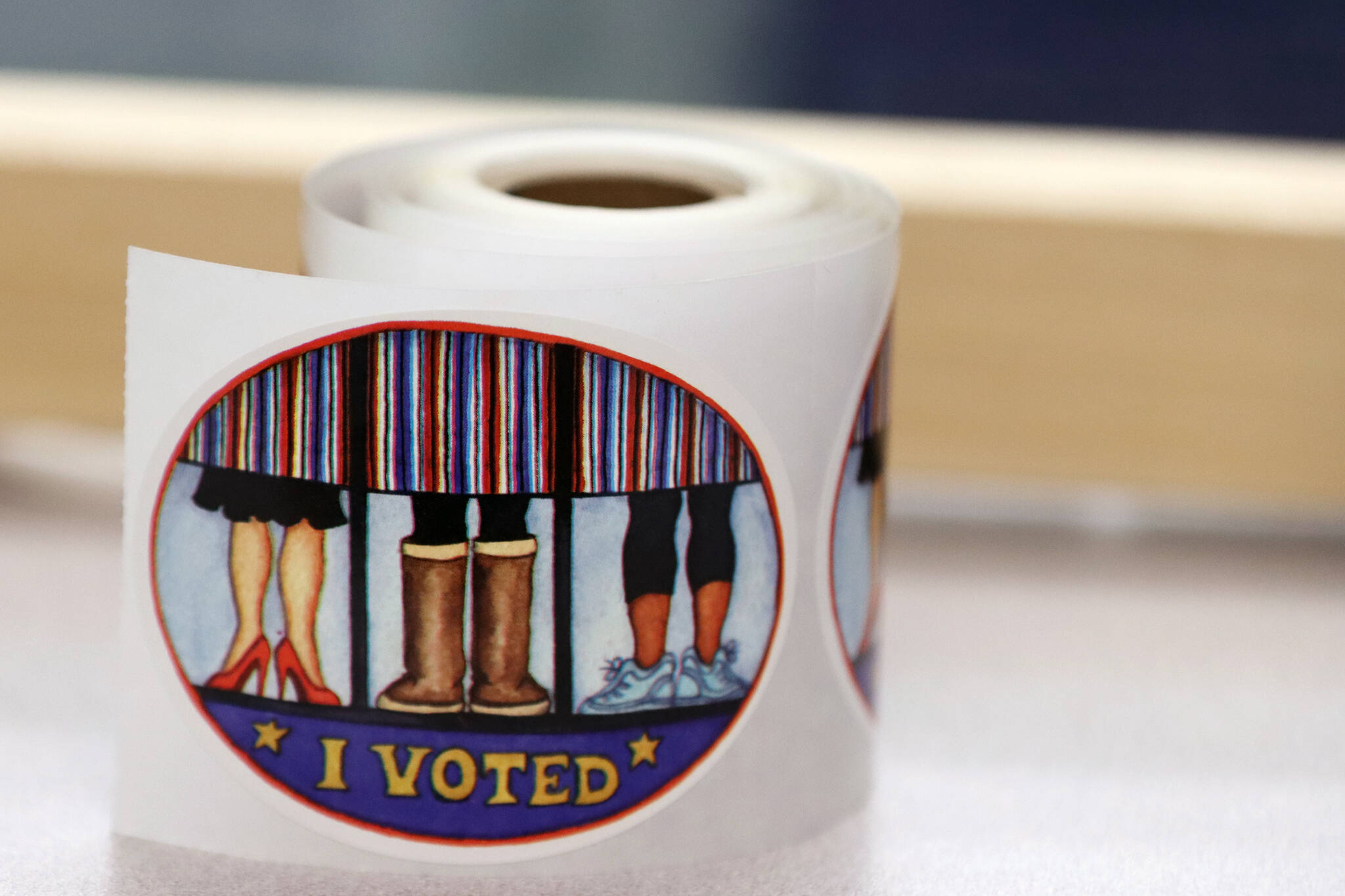This article has been updated with results from Friday night. The primary votes are now unofficially final and awaiting certification.
Democrat Mary Peltola has increased her lead over Republican Sarah Palin to nearly 9% in the special election to fill the remainder of the late U.S. Rep Don Young’s term, creating a potential photo finish when ranked choice votes are tallied next Wednesday, according to the latest results released Friday by the Alaska Division of Elections.
“Our latest projection suggests that based on ballots counted so far, after redistribution we’re headed for…Palin 50.7%, Peltola 49.3%,” Ivan Moore, head of Alaska Survey Research, wrote in a Twitter message at midday Friday, before about 8,000 additional votes continuing ongoing trends were tallied Friday night. In a follow-up analysis he emphasized there are numerous unknowns, and “a small change in the values we’ve assumed and it’s anyone’s race.”
“It’s on a knife edge,” he wrote after Friday night’s results were released.
The same analysis was offered late Friday by Dave Wasserman, U.S. House editor of the nonpartisan Cook Political Report, which recently categorized the race as “likely Republican.”
“If I were forced to describe the outlook now, I’d have a hard time seeing it as anything other than a toss-up,” he wrote in a Twitter message.
Elections officials also released their unofficial final tally from the primary for the regular U.S. House, U.S. Senate and in-state races. There were no major shifts from previously released results, although Peltola’s standing in that race is lower by roughly the same number of votes received by Republican Tara Sweeney — who, like Peltola, is an Alaska Native — who dropped out of the race on Tuesday.
In the special U.S. House race, Peltola has 74,496 votes (39.64%), Palin 58,149 (30.94%) and Republican Nick Begich 52,320 (27.84%), according to totals released Friday evening. That compares to Tuesday’s totals putting Peltola at 38.2% (compared to 38.05% last week), Palin at 31.82% (down from 31.93%) and Begich at 28.47% (down from) 28.54%.
The most recent totals represent 397 of 402 (98.76% precincts) reporting, and 191,823 ballots cast. So the critical questions for Peltola, Palin and Begich is how many absentee ballots are received by the Aug. 31 deadline (and where are they from) and who the second-choice candidate is for voters who ranked more than one on their ballots. Palin stated she voted only for herself and many of her supporters stated they did likewise.
Moore is predicting voters listing second-choice once Begich is eliminated will favor Palin over Peltola by nearly a 60/40 ratio, allowing the former Alaska governor to close the gap in first-choice ballots just enough to eek out barely more than 1% win. But in ultimately calling the race a toss-up, he acknowledged there’s plenty of room for variance in the remaining absentee ballots, as well as remaining questioned ballots he predicts will favor Peltola.
“Republicans are staring at a potential nightmare scenario here, and Begich has Al Gross to thank for costing him the race,” Wasserman wrote, referring to the independent candidate surprisingly dropping out of the race after finishing third in the June primary, thus giving a huge boost to Peltola’s campaign. “Had Gross stayed in and split Dem votes w/ Peltola, Palin/Begich would have finished first/second and Dem ballots would have put Begich over the top.”
The primary elections were conducted the same day as the special election, but final results were tallied Friday since those are due 10 days after election day compared to 15 days for the special election.
In the regular U.S. House race for two-year term starting next January, Peltola has 70,048 votes (36.81%), Palin 57,486 (30.21%), Begich 49,833 (26.18%) and Sweeney 7,142 (3.75%). But with Sweeney dropping out the fifth-place finisher will advance to the November general election under the new non-partisan “final four” process, with Libertarian Chris Bye securing the spot with 1,182 votes (0.62%), more than twice as many as any of the remaining 17 candidates.
Incumbent U.S. Sen. Lisa Murkowski continues to maintain a solid edge with 85,344 votes (45%) over fellow Republican Kelly Tshibaka’s 73,161 votes (38.58%). Democrat Patricia Chesbro trails far behind with 12,945 votes (6.83%) and Republican Buzz Kelley is set for the fourth spot with 4,034 votes (2.13%), also more double that of the remaining 16 candidates.
Murkowski’s showing exceeded many analysts’ expectations, due to Tshibaka far out-polling the incumbent among Republicans, with Chesbro’s below-expectations finished widely attributed to voters switching to Murkowski in anticipation of the general election. As a result of the margin of her primary victory the Senate Leadership Fund, the Republicans’ primary super PAC, announced it is cutting $1.7 million in near-term planned advertising to boost her campaign.
“Senator Murkowski is in a very strong position and based on that we decided to push back our start date,” Senate Leadership Fund President Steven Law told Politico. He said ads supporting Murkowski will now begin in late September.
In the governor’s race incumbent Republican Mike Dunleavy maintains a dominant lead with 76,248 votes (40.42%), while Democrat Les Gara with 43,511 votes (23.07%) and independent Bill Walker with 42,943 votes (22.77%) continue their virtual deadlock.
Republican Charlie Pierce is locked in to the fourth spot with 12,439 votes (6.59%) and, while his chances of winning the general election appear scant, he could potentially play a significant role if ranked choice voting results in a combination of Walker and Gara voters compiling a near-majority. Pierce announced Friday he is stepping down as the Kenai Peninsula Borough mayor to focus on the race.
Pierce was one of two high-profile Republicans in the primary who said dissatisfaction with Dunleavy’s leadership — not taking a harder stance against COVID-19 related mandates, for instance— during his first term was their motivation for running.
• Contact reporter Mark Sabbatini at mark.sabbatini@juneauempire.com.

